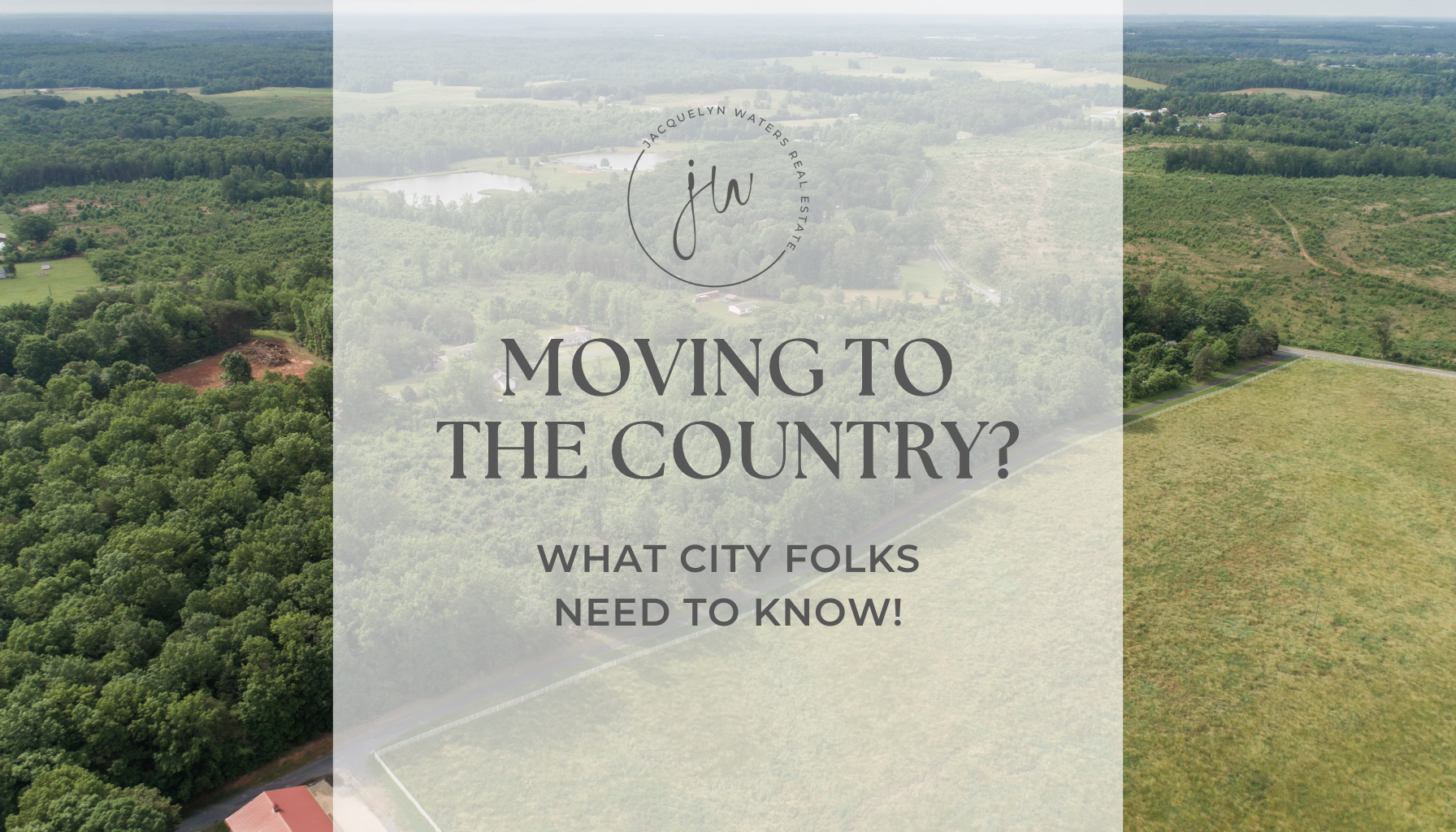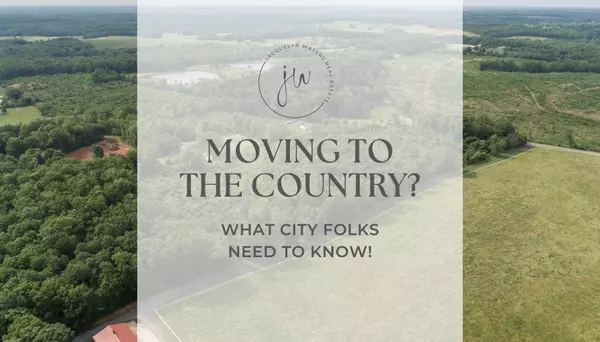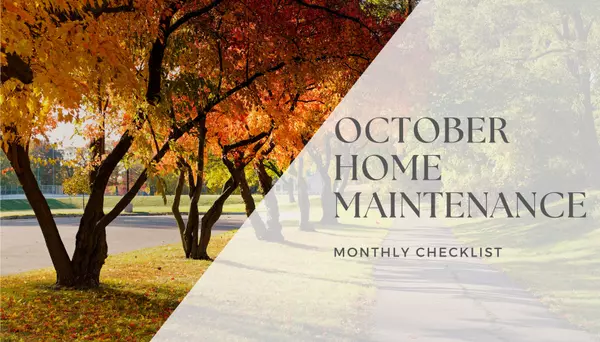Thinking About Moving to Powhatan or Goochland? What City Folks Need to Know
Thinking About Moving to Powhatan or Goochland? What City Folks Need to Know

If you’ve spent your life in the city or suburbs and are itching to swap the hustle and bustle for some peaceful country living in places like Powhatan or Goochland, hold up just a second. Before you trade in traffic jams for winding back roads, there are a few important things you need to know that go way beyond “How far is the nearest grocery store?” Let's talk about the three must-ask questions that can make or break your rural move—and help you avoid any surprises once you get out there.
1. Internet Connection: Check Before You Commit
Internet is one of those things we tend to take for granted when we’re living in the city. But rural internet options can be a whole different story. Just because a property is located in a neighborhood doesn’t mean it’s equipped with high-speed internet. Even if your neighbors have decent connectivity, the lot you're considering might not have the same access. Here’s what you need to do:
- Contact local internet service providers directly to confirm availability at your specific address. Coverage can vary drastically even within the same neighborhood.
- Research the types of internet connections available. In rural Powhatan, Goochland, Cumberland etc. you may be looking at satellite internet, DSL, or fixed wireless. Each has its pros and cons when it comes to speed and reliability. Check out the FCC National Broadband Map
- Understand the impact on remote work or streaming. If you or your family depend on a solid connection for remote work or entertainment, make sure the available options meet your needs before making any decisions.
Reliable internet can be a game-changer—or dealbreaker—for many families, so do your homework upfront.
2. Water and Sewer: Know What You're Getting Into
In rural areas, utilities work a little differently than in the city. The way your water and sewer systems are set up will affect not only your day-to-day life but also your budget and maintenance responsibilities.
- Water Source: Check if the property is connected to municipal water (public/city water) or if it relies on a private well. A private well means regular maintenance and testing to ensure water quality, while shared wells can introduce additional complications if multiple households are drawing from the same source.
- Sewer Options: Rural properties often use septic systems instead of public sewer connections. Determine if it’s a conventional septic system or an engineered septic system—engineered systems are typically installed in areas where the soil conditions aren’t ideal for a conventional system, making them more expensive to maintain. Either way, septic maintenance is an ongoing task you’ll need to stay on top of. To learn more about the various types of septic systems visit EPA: United States Environmental Protection Agency
The water and sewer setup can affect everything from the quality of your drinking water, what you can and cannot flush on septic, to the size of your maintenance budget, so it’s worth getting the details squared away before you buy.
3. Neighboring Lots: What’s the Big Picture?
The beauty of rural living often lies in the peaceful scenery and open space, but that picture-perfect setting might not stay the same forever. Understanding the zoning and future land use around your potential property is key to avoiding unexpected changes down the road.
- Zoning Regulations: Investigate the zoning laws for neighboring lots. Are they zoned for agricultural use, residential, or even commercial development? This can give you clues about what could be built nearby in the future.
- Future Development Plans: Check with the county for any plans to build new roads, schools, or commercial spaces in the area. You don’t want to wake up one day to find out that a new subdivision is going up next door or that a major road is being expanded right behind your backyard.
- Agricultural Land Use: Remember, rural areas may have working farms nearby. This can mean anything from early morning tractor noise to the seasonal scents of farm life. Be sure you know what kind of activity happens on neighboring properties.
When you understand the bigger picture, you can enjoy the peace and quiet without worrying about unwelcome surprises.
Rural Living Comes with LOTS of Questions—These Are Just the Start
These three questions cover some of the most important considerations, but there are plenty more that are unique to rural living. For example, emergency service proximity, road maintenance, property taxes, and even trash collection can work differently compared to urban areas. Don’t be afraid to ask a lot of questions and dig into the details. When it comes to finding your ideal rural property, there’s no such thing as knowing too much.
Why You Need an Agent Who Knows Rural Properties
Navigating the ins and outs of rural real estate can be overwhelming if you’ve never lived outside the city. A local real estate agent who specializes in rural areas like Powhatan or Goochland can guide you through the process, help you ask the right questions, and connect you with local experts who understand the unique aspects of country living. Don’t go it alone—partner with someone who knows how to help you avoid pitfalls and make a truly informed decision.
Ready to Make the Move? Let’s Find Your Perfect Piece of Country Paradise Together.
Whether you’re set on Powhatan, Goochland, or somewhere else in Central Virginia, I’m here to make sure your transition to rural living is as smooth as possible. Reach out, and let’s start planning your move!
Categories
Recent Posts










"My job is to ensure my clients feel heard, respected and empowered to make the best possible decisions for THEIR family. "

